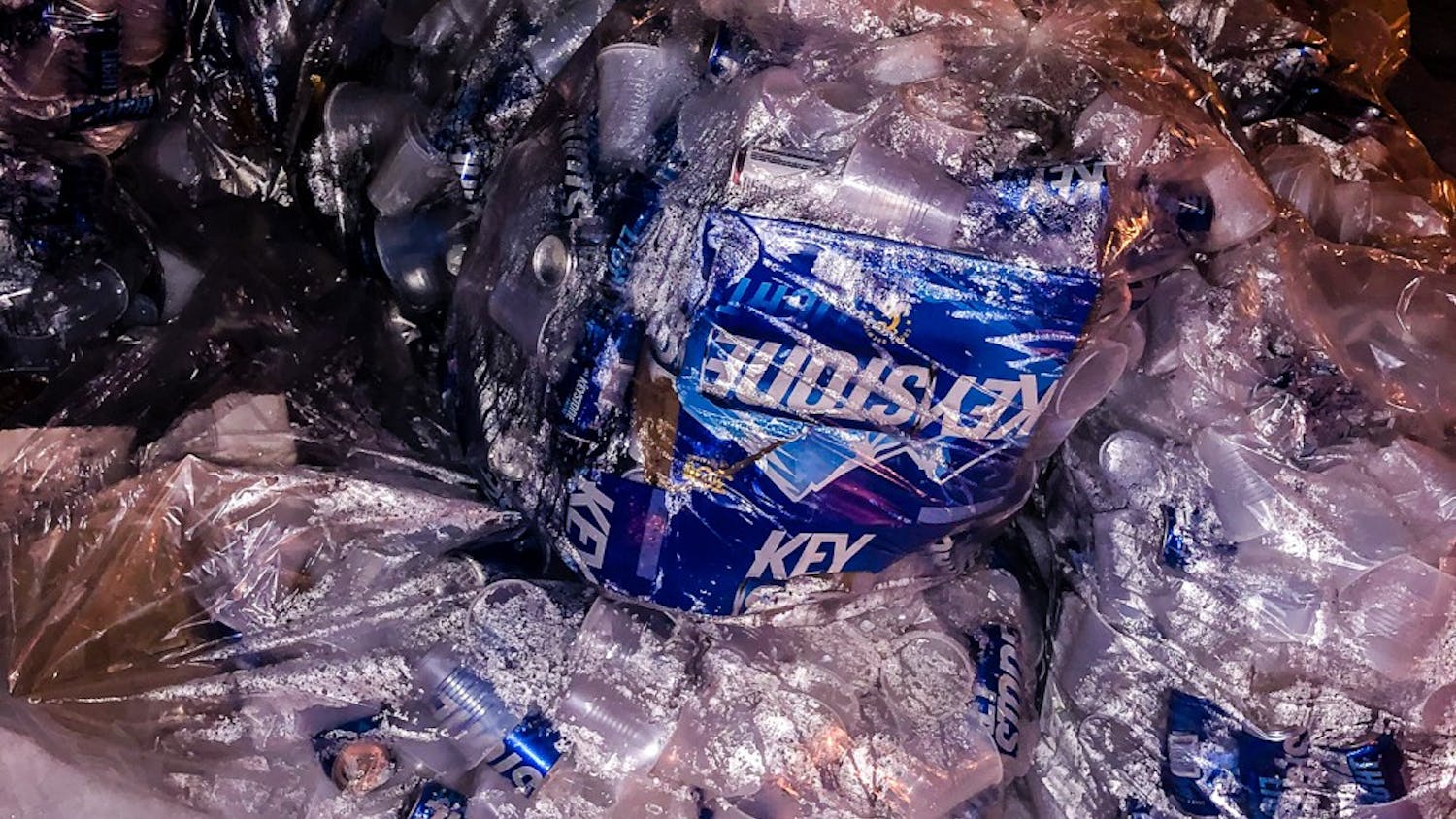As both an affiliated student at Dartmouth and as a waste diversion intern with the Sustainability Office, I have experienced first-hand the divide that exists between sustainability and Greek life. It is nearly impossible to disregard the staggering amount of plastic cups and Keystone Light cans littered among Greek house basements — yet many students don’t blink an eye before tossing another can onto the pile. In the 2018-19 academic year, 65 percent of Dartmouth’s student population was affiliated with the Greek system. Greek life can no longer keep secluded from the environmental issues that affect every student on campus.
This term, Sustainability Office interns have carried out a recycling competition among Greek houses to reduce waste. An article published last week by The Dartmouth reported that the average Greek house at Dartmouth goes through approximately 114,000 cups and 22,000 beer cans per term.
And things aren’t looking good. In 2018, Casella Waste Management, the company responsible for distributing Dartmouth’s waste, switched to a zero-sort recycling system — which is much more sensitive to contamination by non-recyclable material. China, a major recycling center, has also reduced its contamination threshold. A Greek house basement isn’t exactly conducive to meticulous sorting, so a lot of recyclable materials are now being diverted to the landfill from Dartmouth’s campus.
To adapt to these changing conditions, Greek houses must prioritize sustainability over convenience. While a term-long competition provides a temporary solution, it is not feasible for Greek spaces to sort through thousands of contaminated cups and cans every week.
Colleges across the United States have begun developing innovative solutions to combat campus-specific issues such as Greek waste diversion. In 2018, Bowdoin College implemented a reusable cup system in its social spaces. After recognizing the significant amount of waste generated by plastic cups, several sustainability interns proposed the switch to a reusable cup system, in which each house is responsible for washing the cups every week prior to reuse. While there was some minor student backlash, the houses ultimately implemented the new system.
There’s another simple solution to reduce waste in the Greek system: kegs. Kegs are allowed on Dartmouth’s campus, but must be registered by 3:00 p.m. on the day of an event, per Dartmouth’s Alcohol Management Program Policy. Even if a reusable cup system isn’t feasible on our campus, kegs would significantly reduce the number of Keystone cans sent to the landfill. One keg holds around 165 12-ounce cans of beer. And they are cheaper. One keg of Keystone Light costs about $70 — to buy that beer in $17 30-packs would cost $93.50. Given the sheer volume of beer consumed by the Greek system, the savings quickly add up.
Keystone cans are not the only unsustainable aspect of Greek houses. While certain problems are more salient than others, a variety of smaller — but still important — issues are often overlooked. Greeks Going Green, a nonprofit organization dedicated to mobilizing Greek members around sustainable initiatives, has taken root at several college campuses around the country and focuses on incremental improvements. The University of Pennsylvania has implemented principles of Greeks Going Green and established an extensive how-to guide for Greek spaces to reduce their environmental impact. Centered around the topics of waste, energy, water and community engagement, the program provides resources and materials for use within all Greek houses.
One major inhibitor to environmental progress is accountability. It is easy for Greek houses to make vague commitments to more sustainable operations, but without enforcement, these commitments are just empty promises. A few Greek houses on campus have created the position of Sustainability Chair to promote eco-friendly practices within the house and encourage Greek members to think critically about the impacts of their actions. By designating a position for sustainability, Greek spaces ensure that environmental well-being at least has a voice at the table when planning house and social events. But sustainability chairs still aren’t the norm, and more houses need to acknowledge the importance of dedicating a position to reducing the house’s environmental impact.
Greek life can’t remain exempt from sustainable practices. If other colleges can develop innovative solutions for their campuses, then Dartmouth, with its copious financial resources and knowledgeable student body, should be no exception. Whether it be kegs, sustainability chairs or recycling an empty can of Keystone, any effort to reduce our environmental impact is a step in the right direction.



